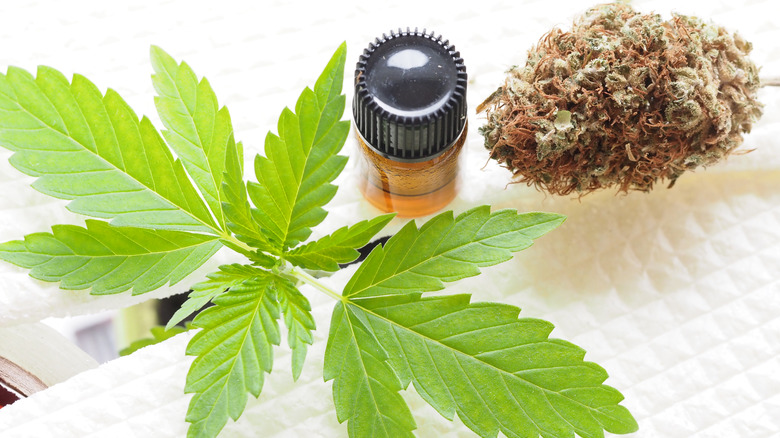Study Reveals The Startling Rate At Which Teenagers Are Becoming Addicted To Marijuana
The results of a new study suggest that teenagers are over three times as likely to become addicted to marijuana compared to adults. These findings support what experts already know about the developing teenage brain, according to Linda Richter, vice president of prevention research and analysis for the Partnership to End Addiction (per HealthDay News).
The developing teenage brain adapts to marijuana and other addictive substances, making addiction more likely during this period, Richter explained. She also said that the impulse control part of the teenage brain is not fully developed, making the risk of addiction to marijuana even greater. In addition, today's cannabis products tend to contain higher dosages of the chemical THC, which causes the high.
The study, recently published in the Journal of Psychopharmacology, followed 274 participants, including 76 teenagers, who used cannabis at least once a week. The results are based on questionnaires the participants completed over the course of 12 months.
While the study's results showed that teenage brains are highly susceptible to marijuana addiction, lead researcher Will Lawn said that teenagers were not more susceptible to conditions that often result from marijuana use. These include depression, anxiety, and cognitive impairment, among others.
Teenage substance abuse: Symptoms and interventions
According to the National Center for Drug Abuse Statistics, drug use among American eighth-graders shot up over 60% between 2016 and 2020, with roughly one out of every eight teenagers consuming an illegal substance at least once within the past year. With regard to marijuana, specifically, health experts predict that addiction among teenagers will increase even more as marijuana becomes legal in more areas of the United States, per HealthDay News.
The Mayo Clinic explains that a teenager typically begins abusing drugs in social settings and may continue from there. It adds that the risk for teenage substance abuse increases if there is a family history, if the teenager has a mental health condition, or is prone to impulsive behavior. Some signs that a teenager is abusing addictive substances include an extreme change in eating habits, irresponsible behavior, and withdrawal from family, among others. If you are a parent and suspect your teenager is abusing drugs, having an open dialogue about the dangers while also listening to your teenager's opinions and questions is vital, as well as spending more time with your teen.
If you or anyone you know is struggling with addiction issues, help is available. Visit the Substance Abuse and Mental Health Services Administration website or contact SAMHSA's National Helpline at 1-800-662-HELP (4357).


